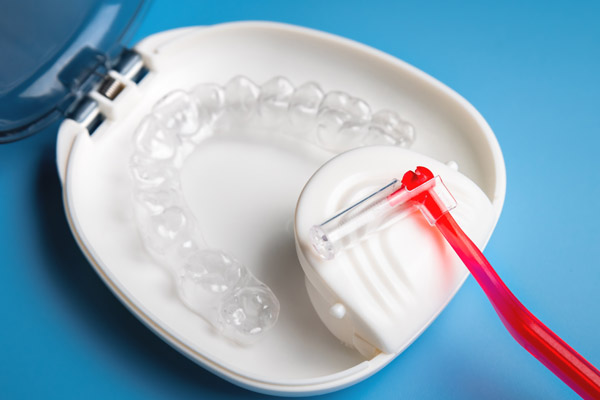Implant Supported Dentures FAQs

There are two basic types of dentures: implant supported dentures and conventional dentures. While you probably have a good idea of what standard dentures are all about, you might not know much about implants. If you need an artificial set, check out these frequently asked questions. Also, talk to your dentist. Implant supported dentures could be the right solution for your specific needs.
Why implant supported dentures?
For a lot of people, an implant makes far more sense than wearing normal dentures. Anyone who has one missing tooth, several or perhaps all, could be a great candidate for this procedure. For one thing, replacing a missing tooth with an implant makes a person feel better about themselves. Also, this makes eating less of a task and more of an enjoyable event.
What is a dental implant?
Implant supported dentures are a type of prosthesis for the mouth. What makes them different from conventional dentures is that an oral surgeon performs a surgical procedure. They insert titanium screws into the jawbone where the new tooth will eventually go. The patient must wait about two weeks to allow the sutured incision to heal. At that point, the abutment goes onto the screw, followed by the set of new teeth.
What advantages do implants offer?
Although today’s dentures are far better than those made even a few years ago, implant supported dentures provide some extra benefits. Whether someone lost their teeth due to decay, gum disease or a traumatic injury, implants last a lifetime. Made from titanium, there is never any concern about the implants decaying. Also, when people have this surgery done, the new teeth help boost their self-esteem.
Are there any disadvantages?
When it comes to implant supported dentures, there are more advantages than disadvantages. However, to be fair, someone considering this surgery should know about both. The biggest concern is that a patient could develop an infection. There is also a slight risk of experiencing pain or dealing with inflammation. Fortunately, the oral surgeon who performs the surgery will monitor the patient following the surgery to identify and treat any issues right away.
Does insurance cover implants?
It all depends on the patient’s situation and the type of coverage they have. At one time, it was hard to get an insurance company to pay for implant supported dentures. As this surgery becomes more commonplace, many have changed their guidelines. An individual can speak to the insurer ahead of time to find out. Otherwise, the cost of having one implant is virtually identical to that of a fixed bridge.
What does All-On-4 mean?
This trademarked treatment entails a dentist replacing all of a patient’s teeth using four implants. In other words, instead of individual titanium implants, the dental professional inserts four — two on the bottom and two on the top. This procedure works great for people who have lost a significant amount of bone in the back portion of the mouth. As with the other option, patients end up with beautiful teeth.
Sounds like a plan?
After learning about implant supported dentures, it is hard not to feel excited. As a permanent solution, you do not have to take them out every night to soak and clean. These dentures also prevent any embarrassing mishaps when conventional dentures slip. If this sounds like something that would benefit you, talk to your dentist.
Request an appointment here: https://whiteflintfamilydental.com or call White Flint Family Dental at (301) 273-1085 for an appointment in our Rockville office.
Check out what others are saying about our services on Yelp: Read our Yelp reviews.
Recent Posts
If your son or daughter is concerned about crooked teeth or a bad bite, you may want to consider Invisalign® for teens. This is an alternative to metal or ceramic braces, and it has numerous benefits, especially for those who are self-conscious about how they look. There are various reasons why Invisalign may be the…
Visiting a new dental office can be a daunting experience, especially for those unsure of what to expect during their first appointment. Whether you seek general, cosmetic, or pediatric dental care, understanding what happens during a first visit can help reduce anxiety and ensure a smooth experience. A dental office visit typically includes an initial…
A general dentist is often the first to inform parents that a teenage patient needs braces. As an orthodontic option, Invisalign® for teens can produce results in just a few months with minimal discomfort. This process can work to straighten teeth that are out of line, crooked, or twisted, and there may be no need…
Invisalign® for teens can offer adolescents a more comfortable and more discreet option for straightening their teeth. For years, braces were one of the only options for effectively treating a crooked smile. Even though Invisalign® has been providing an alternative for decades, some people may not be familiar with who it is for and how…


